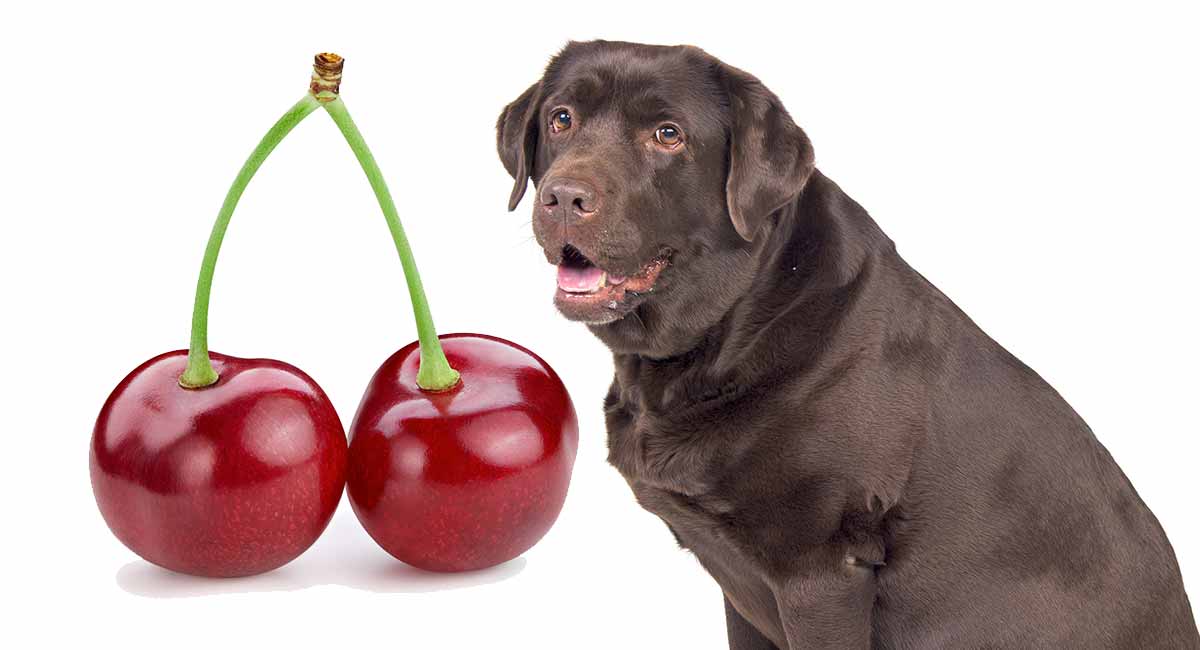Cherries are a popular and delicious fruit enjoyed by humans, but when it comes to dogs, caution is advised. While cherries themselves are not inherently toxic to dogs, they do pose certain risks that dog owners should be aware of.
The main concern is the pit or seed inside cherries, which contains compounds that can be harmful to dogs. These compounds include cyanide, which is toxic and can lead to poisoning if ingested in significant amounts. Ingesting cherry pits can potentially result in symptoms such as vomiting, diarrhea, and abdominal discomfort in dogs.
Additionally, the flesh of the cherry contains natural sugars, and consuming too much fruit can lead to gastrointestinal upset, including diarrhea. Some dogs may also have sensitivities to new foods, and introducing cherries suddenly into their diet can lead to stomach upset or allergic reactions.
If you’re considering giving your dog cherries, it’s crucial to remove the pits and stems completely before offering any flesh. Even then, it’s recommended to do so sparingly and in small amounts. If you notice any unusual symptoms after your dog has consumed cherries or any other new food, it’s important to contact your veterinarian for guidance
Potential Health Risk for Dogs if Feeding Cherries
Feeding cherries to dogs can pose several potential health risks, primarily due to the presence of pits and certain compounds in the fruit. Here are some key concerns:
- Cyanide Poisoning: Cherry pits contain compounds that release cyanide when broken down. Cyanide is toxic to both humans and dogs and can lead to cyanide poisoning if ingested in significant amounts. Even a small amount of cyanide can be harmful to dogs, causing symptoms such as difficulty breathing, dilated pupils, and, in severe cases, even death.
- Choking Hazard: The pits of cherries are hard and can pose a choking hazard for dogs, especially smaller breeds. If a dog swallows a cherry pit whole, it could get lodged in their throat, leading to choking or other serious complications.
- Gastrointestinal Upset: Cherries contain natural sugars, which can lead to gastrointestinal upset in dogs. Consuming too much sugar can cause stomach discomfort, diarrhea, and vomiting.
- Allergic Reactions: Dogs can have allergies or sensitivities to certain foods, including cherries. Introducing a new food like cherries into their diet could trigger allergic reactions, ranging from itching and skin problems to digestive issues.
- Obstruction and Digestive Issues: Ingesting cherry pits could lead to gastrointestinal obstruction, particularly if the pit becomes stuck in the dog’s digestive tract. This could require surgery to remove the obstruction.
Given these potential risks, it’s advisable to avoid feeding cherries to dogs altogether. If you suspect your dog has consumed cherries, especially pits, or is showing any unusual symptoms, such as vomiting, diarrhea, or difficulty breathing, seek immediate veterinary attention.
It’s always a good idea to consult your veterinarian before introducing any new foods into your dog’s diet to ensure their safety and well-being. If you’re looking for safe and healthy treats for your dog, there are plenty of dog-friendly options available that won’t pose these potential risks.

Credit: www.thelabradorsite.com
Can Dogs Eat Cherries Without Seeds?
The short answer is yes, dogs can eat cherries without seeds. However, there are a few things to keep in mind before sharing this tasty treat with your pup. First, although cherries are safe for dogs to eat, the pits and seeds contain cyanide which can be poisonous to both people and animals.
So, it’s important to remove all the pits and seeds before giving any to your dog. Second, some dogs may be allergic to cherries just like people can be. So if you’re unsure whether or not your dog has any allergies, it’s always best to check with your vet first before feeding them anything new.
Lastly, as with any type of food, moderation is key when it comes to feeding cherries (or anything else!) to your dog. A few here and there as a treat should be fine, but don’t overdo it as too much of anything can lead to an upset stomach. So there you have it!
Now you know that dogs can safely enjoy this summertime fruit – just remember to remove the pits and seeds first and feed in moderation!
How Many Cherries Can Kill a Dog
Cherry poisoning in dogs is a serious concern for pet owners. The pits of cherries contain cyanide, which can be deadly to dogs if ingested. Even a small dog can be killed by eating just a few cherry pits.
Symptoms of cherry poisoning include vomiting, diarrhea, drooling, weakness, and difficulty breathing. If your dog has eaten any cherries, even just the flesh without the pit, contact your veterinarian immediately.
How Many Cherries Can a Dog Eat?
Cherries that have been processed or canned may contain harmful chemicals or preservatives that can be dangerous for dogs. Secondly, make sure to remove the pit from the cherry before giving it to your dog as swallowing a pit could cause an obstruction in their digestive tract.
Finally, only give your dog a few cherries at a time as too many could cause stomach upset. If you follow these simple guidelines, then your dog can enjoy the taste of fresh cherries just like the rest of us!
Conclusion
Cherries are a type of fruit that can be enjoyed by people and dogs alike. However, there are a few things to keep in mind when feeding cherries to your pup.
The pits of cherries contain cyanide, which can be poisonous to dogs if eaten. Additionally, the stems of the fruit can also be harmful as they can cause gastrointestinal blockages.
For these reasons, it is important to remove the pits and stems from any cherries before giving them to your dog.
If you do choose to feed your dog cherries, make sure to do so in moderation as too much sugar is not good for their health either.